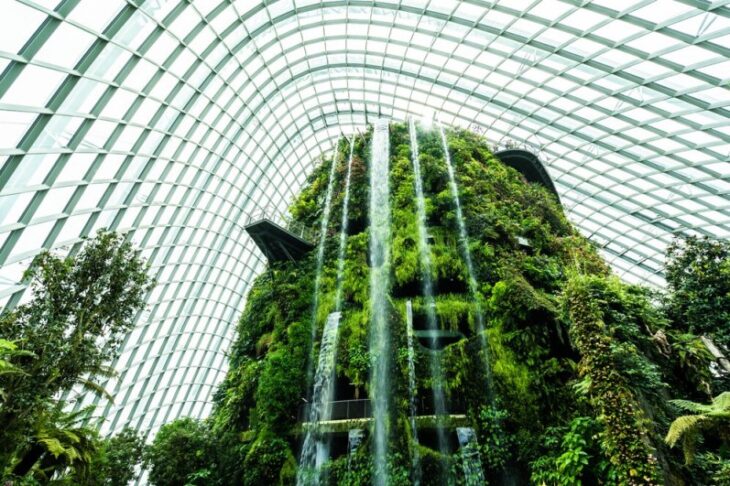
The Business Case for Sustainability in Indian Retail
Rising concern about environmental issues and a dire need to tackle climate change has made sustainability a trend across the globe in the retail industry. This aspect is crucial for sustainability in real estate, which gives an all-around approach from tracing and understanding carbon emissions to actively working on carbon offsetting initiatives. Increasingly, retailers all over the world have adopted green practices, not just because of the need for regulatory compliance but also because of the growing demand from consumers for this specific practice.
This trend is gaining pace quickly in India. According to JLL, leasing activity by retailers in organized retail centers and key high streets across the top seven cities recorded a spurt in Q2 of 2024. Delhi-NCR stood at 62% contribution to leasing activity, which signifies how retailers have adopted more sustainable ways and appeal to eco-conscious consumers. Gradually, by incorporating the most energy-efficient store designs, this change is adopted by the Indian retail sector; it is a reflection of a bigger move toward greener business practices. In addition, retailers promote sustainability using eco-friendly materials and energy-efficient technology and offer projects aligning with customer values.
Moreover, the surge in leasing activity can also be attributed to retailers proactively securing leases in newly completed Grade A projects launched by established developers and institutional owners last year. In addition, retailers secured spaces in leading organized high streets.
Abhishek Bansal, Executive Director, Pacific Group, said, “Sustainability is a unique way for brands to stand out. Integrating the aspects of eco-friendly practice can help retailers be distinct from others. This not only appeals to a growing segment of eco-conscious consumers but also attracts partnerships, investors, and talent who are aligned with the brand's values.”
Yukti Nagpal, Director, Gulshan Group, added, “In today's retail landscape, adopting sustainable practices is no longer optional—it's essential. Retailers in the NCR region are increasingly embracing energy-efficient solutions and eco-friendly designs, a trend that is set to further enhance the retail sector along the Noida-Greater Noida expressway, a key hub for commercial activity. This momentum drives us to create spaces that align with the values of modern consumers, demonstrating our unwavering commitment to sustainability at every stage.”
“There is a growing acknowledgment of sustainability in the industry. The growing demand for green practices in retail reflects the evolving consumer mindset. Moreover, the potential is higher around the Noida Expressway since there is a demand for green office spaces and retail outlets. As sustainability lies at the core of our business philosophy, our IGBC Platinum Pre-Certified projects ensure our commitment to a sustainable future,” said Dr. Amish Bhutani, Managing Director, Group 108.
Moreover, one of the most immediate financial benefits of adopting sustainability in retail is the reduction in energy costs. Green certification also positively impacts the bottom line. It provides a structure for designing and building sustainable buildings, leading to fewer maintenance costs. The retail spaces in NCR use sustainable design and construction methods that bring in more foot traffic. They enhance brand loyalty and reputation and attract tenants and customers who place high value on environmental responsibility.
Furthermore, Prakriti Kundaliya, Assistant Vice President, Marketing, Reach Group, said, “Sustainability is a powerful tool for enhancing the shopping experience and building brand reputation. By incorporating sustainable practices into their retail spaces, businesses can create a more inviting and welcoming atmosphere that resonates with today's environmentally conscious consumers. Sustainable features such as natural lighting, green walls, and comfortable seating can contribute to a more pleasant shopping experience. Additionally, by reducing their environmental impact, businesses can demonstrate their commitment to social responsibility, building trust with customers and fostering long-term loyalty.”
Thus, sustainability in retailing is no more a niche concern but an imperative part of the contemporary business strategy. Sustainable retail spaces, especially in the NCR region, are examples that show how eco-friendly design and operation can attract higher footfalls and increase customer loyalty.
